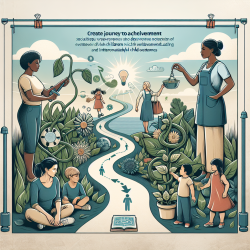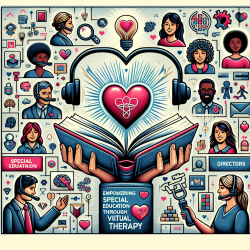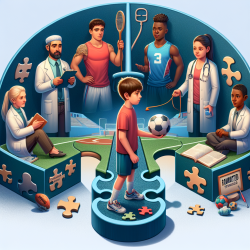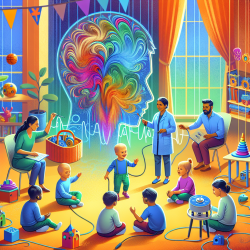Introduction
In the ever-evolving landscape of social work, practitioners are constantly seeking innovative approaches to improve outcomes for children and families. The recent research article, "Adaptability, Interdisciplinarity, Engageability: Critical Reflections on Green Social Work Teaching and Training," sheds light on how Green Social Work (GSW) can enhance professional practice. By focusing on adaptability, interdisciplinarity, and engageability, GSW provides a robust framework for addressing complex societal challenges, including climate change and disasters, which directly impact children's health and well-being.
Adaptability: A Key to Responsive Practice
Adaptability is crucial for social workers, especially when addressing the multifaceted impacts of climate change and disasters on children. The research highlights that integrating GSW into social work education helps practitioners adapt traditional interventions to disaster settings. This adaptability ensures that social workers can swiftly respond to the compounded influences of extreme events on children's health and well-being.
For example, social workers can develop disaster-informed interventions that consider the holistic health needs of children and their families. By understanding the interconnectedness of environmental and social factors, practitioners can better support children in navigating the challenges posed by extreme events.
Interdisciplinarity: Collaborating for Comprehensive Solutions
Interdisciplinarity is at the heart of effective social work practice. The research underscores the importance of collaborating with professionals from diverse fields to develop comprehensive solutions for children affected by climate change and disasters. By working alongside educators, healthcare providers, and environmental experts, social workers can address the root causes of health disparities and promote resilience among children.
This collaborative approach not only enhances the quality of services provided to children but also fosters a deeper understanding of the complex factors influencing their well-being. Social workers are encouraged to engage in interdisciplinary training and partnerships to expand their capacity to support children in diverse settings.
Engageability: Fostering Community Involvement
Engageability, as highlighted in the research, involves actively involving community stakeholders in disaster-driven community development. Social workers play a pivotal role in facilitating community engagement, ensuring that the voices of children and their families are heard in decision-making processes. This engagement is essential for developing culturally sensitive and context-specific interventions that address the unique needs of children in disaster-prone areas.
By leveraging community resources and fostering collaboration among stakeholders, social workers can create supportive environments that promote the health and well-being of children. Engageability empowers communities to take ownership of their development, leading to more sustainable and resilient outcomes for children.
Conclusion
The integration of Green Social Work principles into professional practice offers a transformative approach to improving outcomes for children. By focusing on adaptability, interdisciplinarity, and engageability, social workers can effectively address the challenges posed by climate change and disasters. This research serves as a call to action for practitioners to embrace these principles and engage in further research to refine their skills and enhance their impact on children's lives.
To read the original research paper, please follow this link: Adaptability, Interdisciplinarity, Engageability: Critical Reflections on Green Social Work Teaching and Training.










